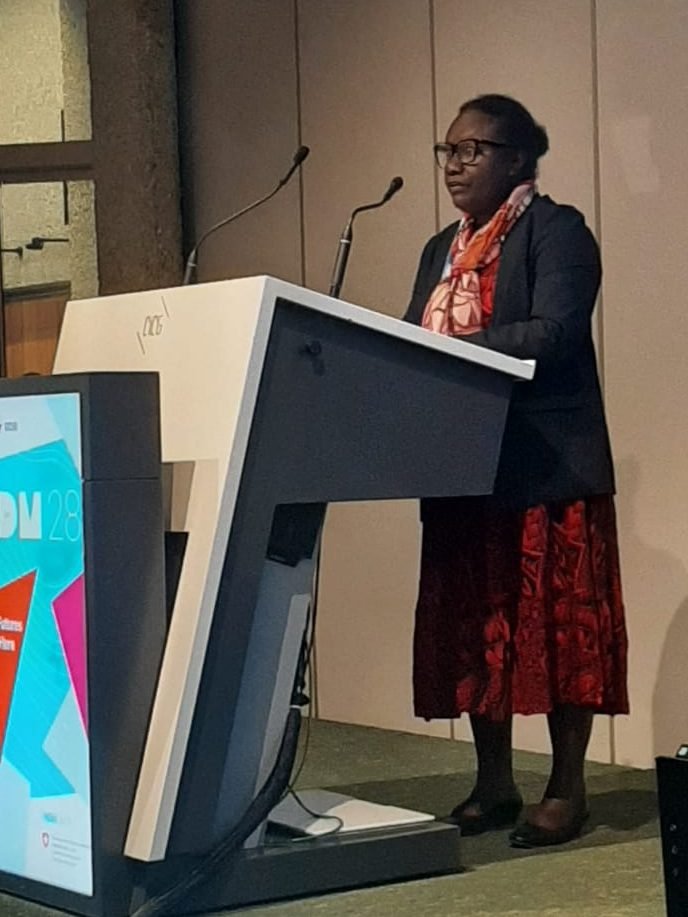
Solomon Islands reaffirms commitment to Mine Action at Geneva International gathering
Solomon Islands has reaffirmed its commitment to get rid of WWII Unexploded Ordnances (UXOs) that continue to threaten lives and properties.
Permanent Secretary of the Ministry of Police, National Security and Correctional Services of the Solomon Islands, Ms. Karen Galokale announced this when she delivered the Solomon Islands address at a side event hosted by the Geneva International Centre for Humanitarian Demining (GICHD) on the Theme “Clearing the Past, Securing the Future – Addressing Explosive Remnants of War in the Pacific.”
Ms. Galokale highlighted the persistent threat posed by explosive remnants of war (ERW), particularly UXO across the Solomon Islands — a legacy of the Second World War that continues to affect communities, infrastructure, livelihoods, and safety for more than 80 years later.
“From the capital city of Honiara to our most remote provinces, our people live each day with the burden of UXO contamination.
“Tragically, these remnants of conflict still cause injuries and fatalities — even among children — and stand in the way of our sustainable development,” Ms. Galokale said.
The Permanent Secretary commended the tireless efforts of the Royal Solomon Islands Police Force (RSIPF) Explosive Ordnance Disposal team, who work under challenging conditions with limited resources.
She also acknowledged the critical support provided by The HALO Trust since its arrival in 2022, including the development of a national UXO baseline through Non-Technical Surveys and capacity building.
Important also is the ongoing capacity and capability support provided to the RSIPF through the existing Defense Cooperation between Australia and Solomon Islands.
Ms. Galokale further praised GICHD’s role in assisting the government in developing the country’s first National UXO Policy, a vital step toward a whole-of-government approach to UXOs action.
GICHD’s technical support in drafting national standards and building an information management system for UXOs action was also highlighted as instrumental.
The Solomon Islands Government is now working toward establishing a national UXO action coordinating office and integrating UXO response into broader development and disaster risk reduction strategies.
A new Director has already been appointed to help build and coordinate this national effort.
In expressing gratitude for bilateral and multilateral support from partners such as the United States, Australia, Japan, and others, Ms. Galokale called for stronger regional cooperation, international assistance, and the empowerment of local communities — especially youth and women — in UXO risk education and response.
“While the legacy of war may still lie beneath our soil, our collective action today has the power to remove these dangers and restore dignity, security, and opportunity to our people,” she concluded.
The Solomon Islands’ presence at the event underscores the urgent need to address the humanitarian, environmental, and developmental impact of ERW in the Pacific and the shared responsibility of the international community in securing a safer future.
[end]
GCU
